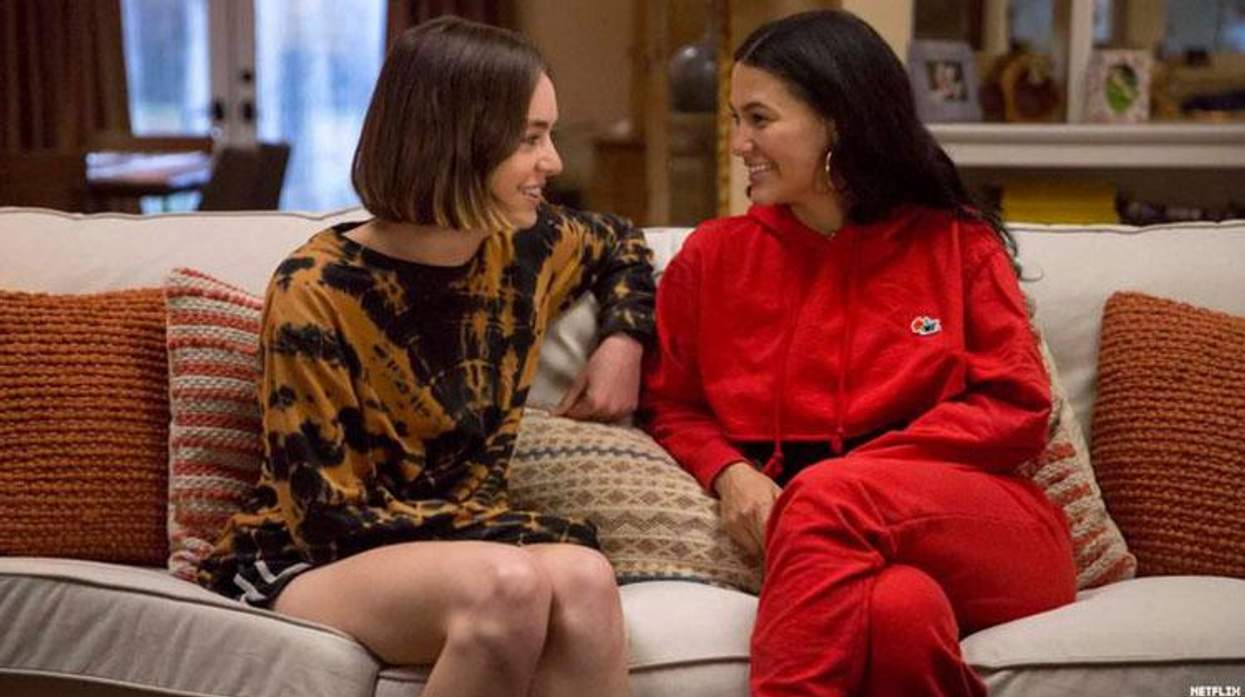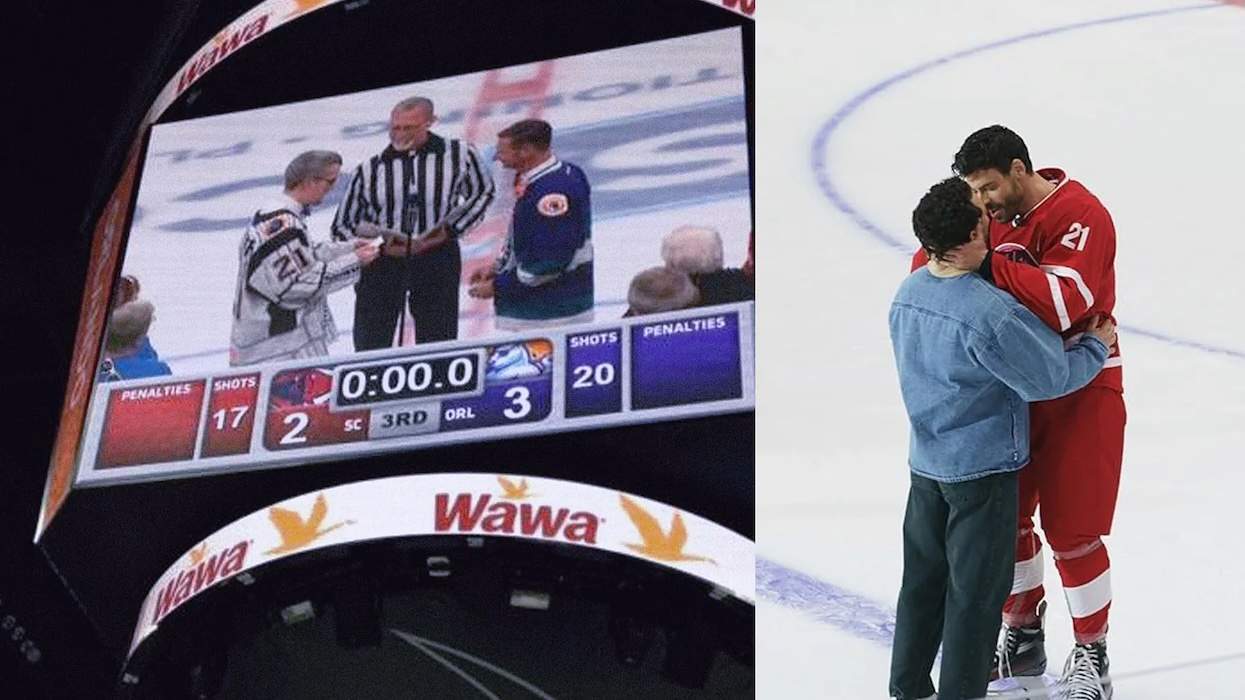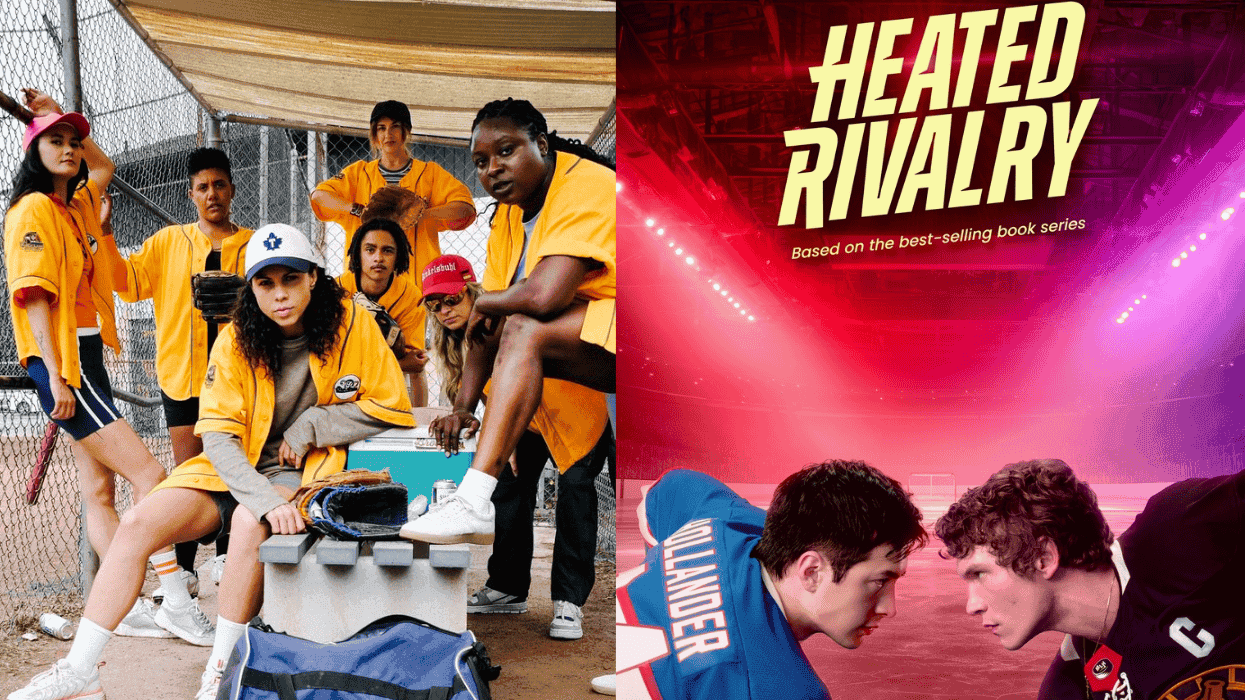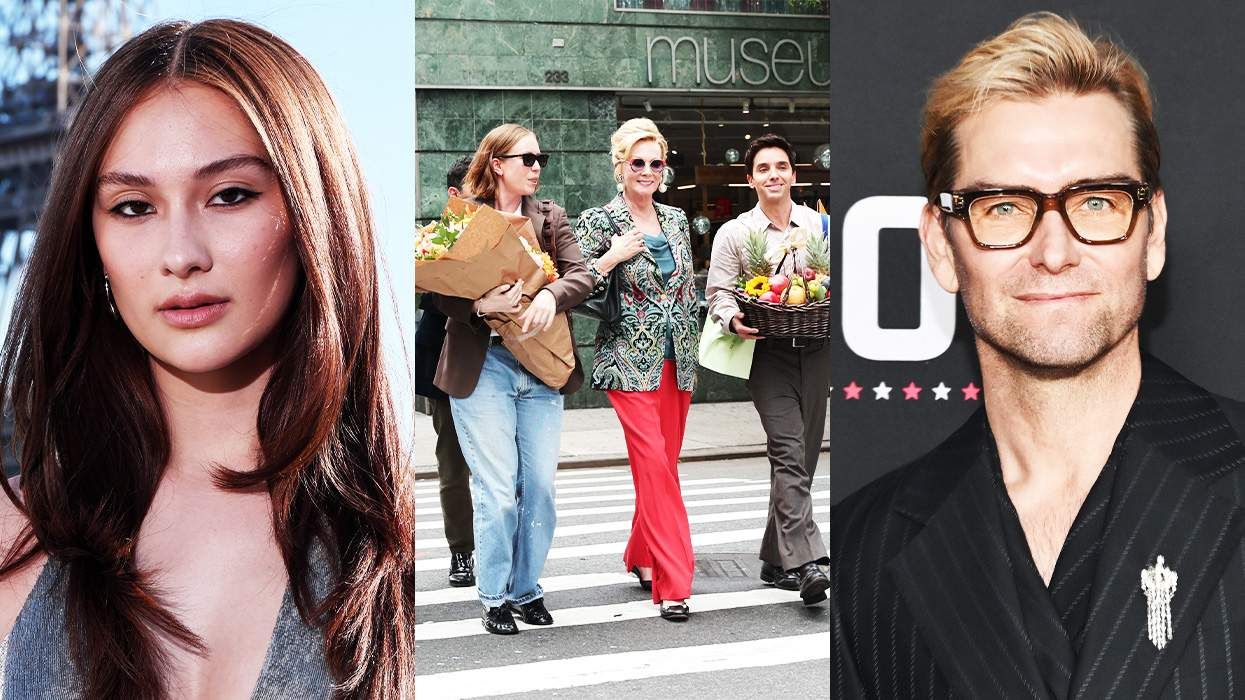In the second episode of season 2 of Atypical, Casey (Brigette Lundy-Paine) returns from her first day of private school. A protective sibling, she is still wrestling with guilt for having left her autistic brother, Sam (Keir Gilchrist), alone in public school. But when a character asks if Casey should return to public school to be back with him, Sam replies, "I actually didn't miss her at all today."
At another point in the series, Sam gifts Casey with a set of pencils as a back-to-school present. "You didn't have to do that," Casey says.
"I'm your big brother," he replies. "I can take care of you sometimes too."
For Lundy-Paine, these scenes between Sam and Casey felt personal. The actress, 25, recalled feeling guilt about parting ways with her younger brother -- who is not autistic but had his own difficulties adjusting to high school -- when she left their San Francisco Bay area home for college. At 18, she was beginning to "realize what a responsibility you have to your family." Faced with leaving, she suddenly felt an "overwhelming need to stay and protect him."
However, in exchanges like the one between the Atypical siblings, Lundy-Paine's brother assured her that her worries were exaggerated. "It's gonna be OK," he told her, as recounted by Lundy-Paine. "I'm taking care of my own shit. Your guilt is your own guilt, and I'm going to figure it out."
"He's extremely strong," Lundy-Paine reflected about her brother. In fact, "he's the most badass dude that I know."
Atypical, which premiered its full 10-episode season on Netflix this weekend, is groundbreaking for centering a television show on an autistic teen -- showcasing his strengths as well as his vulnerabilities in a world that is not always understanding of people who are different.
Yet the sitcom, created by Robia Rashid, takes great care to show how friends and family members are also impacted by vulnerable loved ones. Throughout the season, characters are torn between the instinct to protect Sam but also to give him space to find independence as an adult. They must also be allies -- to educate themselves and others about those who are on the spectrum.
The importance of this representation was felt immediately by Lundy-Paine after the debut of season 1 last year.
"I was just stunned at how many sisters of brothers with autism came forward" to contact her on Instagram, said Lundy-Paine, who has since learned that boys are five times more likely to have autism than girls.
The reactions were not only online. Lundy-Paine recalled how, on a recent trip to Madrid, a girl saw her from across the street and started to cry. The stranger approached her, and in broken English told her, "My brother has autism and we've never seen our family before" in media.
"People really relate," said Lundy-Paine. "I get it."
Although she may still be a fictional teenager, Casey has also helped Lundy-Paine in her own journey as a 20-something woman.
"I think that it's been magnificent to have a high schooler in my life again, that is me. But at the same time, it's not me at all. And in a way, [Casey] knows herself better than I knew myself, and is so much more sure of what's right and wrong than I ever was," she said of her character.
The relationship is symbiotic. "I've been able to use what I've learned as a young adult woman who has found her strength in Casey," she said. "And in turn, Casey has brought this youthful vigor and confidence back in my life."
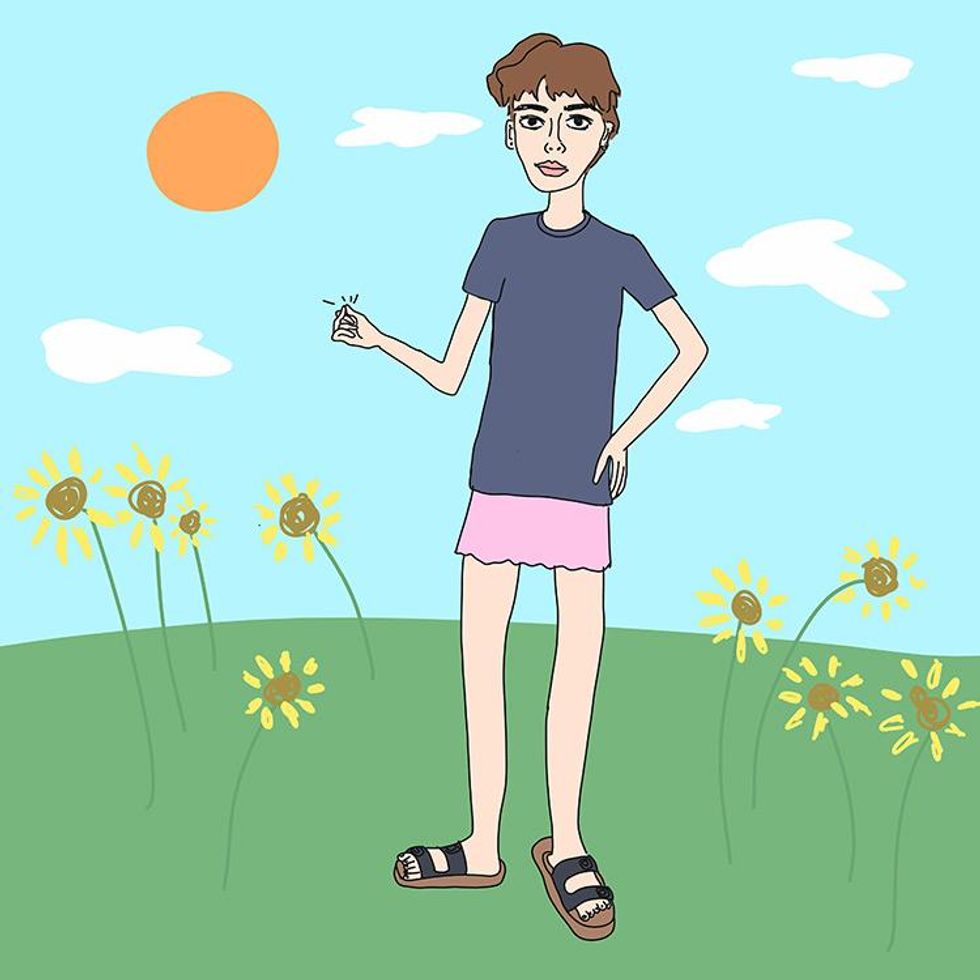
But Casey is not the only character that Lundy-Paine, who identifies as queer, can relate to.
"Sam feels like a deep part of myself that I am only now beginning to let out: the insecurities and the complete confusion with the system and the rules that have been laid out for him," said Lundy-Paine, who understands how many outsiders can identify with Sam.
In Atypical, Sam is confronted with dilemmas that most "neurotypicals" would not think twice about: how to navigate a noisy bus, a sleepover, a relationship, or telling a lie for the benefit of himself and others. Sam must memorize lists of rules in order to fit into society -- but for him, to be in the closet as an autistic person is not an option.
"I think the difference between myself and Sam is that I've gotten really, really good at pretending and lying, and Sam doesn't have that capability," Lundy-Paine said. "So he instead asks questions and freaks the fuck out when he needs to and is honest with himself and others in a way that I actually really admire."
"I think this show is actually really queer even though it hasn't yet explicitly been so," she reflected.
Atypical may not have the obvious queerness of say, a Will & Grace. But the show prominently features two out actors, among them Lundy-Paine and Nik Dodani (Murphy Brown), who is subversively cast as a comedic skirt-chaser, Zahid. Fans of HBO's Looking would also appreciate the presence of Raul Castillo -- who played Richie in the show about gay life in San Francisco -- in Atypical. Without revealing spoilers, Casey has a storyline this season involving her sexuality. "I'm so excited for The Advocate to see it," Lundy-Paine teased.
Women also figure prominently in the production. In addition to being created by Rashid, a woman of color, seven of 10 episodes in season 2 were directed by women, and women make up half of the writers' room. The show's caliber is also raised by the strengths of its talented actresses, among them the great Jennifer Jason Leigh (Elsa), Amy Okuda (Julia), Jenna Boyd (Paige), and Lundy-Paine.
In season 2, all of these female characters are exploring how to be themselves outside of the traditional model of heteronormative relationships. Elsa is separated from her husband after she had an affair. Julia, who is pregnant, contemplates being a single parent. Paige, after being hurt by Sam, lays down the ground rules for an open relationship. And Casey, who is in a relationship with a boy, begins to question her feelings for a new female friend.
Diversity is a key component of the show. After receiving some backlash from season 1 for the casting of Gilchrist, who does not have autism, the show has hired several autistic actors, who are featured in a support group. Their inclusion was beneficial for everyone throughout production, said Lundy-Paine; it also dispelled some misconceptions about people who are on the spectrum.
"People with autism are extremely good at working ... in a scripted environment, because that's how they live their lives a lot of the time," Lundy-Paine praised. "So when it came time for the cameras [to have] started rolling, we were all on an equal playing field. I think that was really exciting for the quality of the show, but it was also just really exciting for people's inspiration on set. For people who are watching the show, I think [that inspiration] really comes across."
These combined factors -- a creator who is a woman of color, the recentering of a traditional sitcom on a historically marginalized person, authentic characters, and women and people of color in front of and behind the camera -- all contribute to the queerness of Atypical. The title itself is a synonym for queer as well as a label that can be embraced by anyone who differs from the norm. And Atypical's tagline for season 1? "Normal is overrated."
For Lundy-Paine, Atypical's queerness is a refreshing reprieve from more "typical" Hollywood productions. "I'm just like constantly stunned at how hetero stories -- even stories that claim not to be [hetero] -- continue to be. I hope that we can create a pushback against that," she said.
From the onset, queer fans resonated with and celebrated Atypical. "I can't quite tell if it's my presence as Brigette or the show. But I've gotten some really, really lovely messages" from members of the LGBTQ community, said Lundy-Paine. "I literally think I got a message from someone that said, 'Your performance as Casey made me come out as trans.' I don't know why, but I love that so much."
In her own life, Lundy-Paine had a relatively easy experience coming out. "I come from a very queer family," she attested, noting how various members of her extended family have done much of the legwork in raising visibility and acceptance. For her, "I think it was just like a teary phone call to my mom when I had my first girlfriend. And then after that it was kinda like, Oh, I don't have to really tell anybody else. I just date who I want and not have to put up with it."
Yet her sense of identity -- and how to protect it -- is still evolving. "I have yet to figure out if I ever will date a straight guy again," Lundy-Paine said, after reading an article about how the activist Blair Imani was frustrated that her queer identity was erased by society after she began dating a man. But she hasn't discounted the possibility. "It's all about testing the waters," she said.
On social media, Lundy-Paine is unabashedly queer. Her Instagram, which has over 190,000 followers, showcases a range of gender fluidity, with photographs of herself wearing tulle gowns and makeup as well as men's undershirts and facial hair on red carpets.
She is also the cofounder of Waif, "an alternative art magazine" written by people who had "never really written before" about subjects that "never had an audience before." Waif's manifesto? "Waif is when you play the piano & you don't know how to play the piano," it reads, among other proverbs.
Topics addressed in this magazine's articles include a profile on drag photographer Marissa Leitman and "homo-FOMO-ia" -- a "fear of missing out" about the joys of being queer among young people. A recent study found that 20 percent of millennials -- people age 18-34 -- identify as LGBTQ. Lundy-Paine has observed this statistic among her own friends; many who used to identify as straight have now come out.
"I feel grateful to be part of such an expanding queer community," she said. "And there's something about Atypical that feels part of that."
This movement, she reflected, is far larger than one show.
"I'm feeling in the earth a massive shift, in especially female consciousness, that is ... slightly different than feminism. It feels like this mass reexamination of the stories we're being told. I think it's really exciting that so many of these stories are slowly but surely taking a different angle," Lundy-Paine mused. "I just feel lucky to be part of that wave."
All episodes of Atypical season 2 are now available to stream on Netflix. Watch the trailer below.
